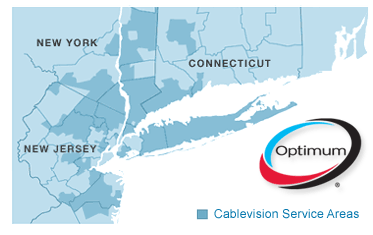 While simultaneously complaining about the spiraling costs of sports programming such as MSG Networks, the nation’s two largest cable operators are planning to cut checks worth $80 million to help bail the NY Mets baseball team out of some of its long term debt.
While simultaneously complaining about the spiraling costs of sports programming such as MSG Networks, the nation’s two largest cable operators are planning to cut checks worth $80 million to help bail the NY Mets baseball team out of some of its long term debt.
The New York Times reports both Comcast and Time Warner Cable are preparing to funnel funds into the team through regional sports network SNY.
Time Warner Cable and Comcast are nearing a plan to finance SNY’s purchase of four shares in the Mets, worth $80 million, said one person e with knowledge of the plan who was not authorized to speak publicly.
[…] That means they will have much-needed cash to pay off their substantial debts. But it would be a slightly quirky way of doing it. The deal would mean 16 percent of the Mets would be owned by SNY. The Mets’ parent company, Sterling Equities, owns 70 percent of the network.
[…] Lee Berke, the president of a media consulting company, said that Time Warner Cable and Comcast “don’t want to see the team stumble as it has been, because it directly impacts what they’re putting on TV. This is shaping up as a multiyear downswing for the Mets, and this is a way to keep them above water.”
[…] As for Time Warner Cable and Comcast, it was not immediately clear why they would not invest directly in the Mets. But the two companies clearly want to put money into Wilpon’s financially beleaguered hands (the club has lost some $120 million in the last two years), even if it has to be routed through SNY, to ensure that the team meets its $200 million goal.
[…] Together, Time Warner Cable and Comcast own about 30 percent of SNY. The network started carrying Mets games in 2006.
That investment comes at the same time cable operators are increasingly vocal about sports programming costs.
 “ESPN, through … sheer muscle, has been able to say to us, ‘You will carry this service on the lowest level subscription you offer, and you will make all of them pay for it,’” Matt Polka, CEO of the American Cable Association, a trade group told Newsweek. “My next-door neighbor is 74, a widow. She says to me, ‘Why do I have to get all that sports programming?’ She has no idea that in the course of a year, for just ESPN and ESPN2, she is sending a check to Disney for about $70. She would be apoplectic if she knew … Ultimately, there’s going to be a revolt over the cost. Or policymakers will get involved, because the costs of these things are so out of line with cost of living that someone’s going to put up a stop sign.”
“ESPN, through … sheer muscle, has been able to say to us, ‘You will carry this service on the lowest level subscription you offer, and you will make all of them pay for it,’” Matt Polka, CEO of the American Cable Association, a trade group told Newsweek. “My next-door neighbor is 74, a widow. She says to me, ‘Why do I have to get all that sports programming?’ She has no idea that in the course of a year, for just ESPN and ESPN2, she is sending a check to Disney for about $70. She would be apoplectic if she knew … Ultimately, there’s going to be a revolt over the cost. Or policymakers will get involved, because the costs of these things are so out of line with cost of living that someone’s going to put up a stop sign.”
Cable analysts continue to be astonished by an inflation rate in sports programming rates that rivals health care costs.
“Every time [there is] a huge increase we can’t believe it, and then there’s another huge increase,” says Laura Martin, an analyst with investment bank Needham & Co. “The rapidly rising cost of sports, especially the new NFL contracts, increases the likelihood that sports will be forced by the government to be on a different tier within three years, by our estimates.”
Cable industry investment in sporting teams is now becoming a familiar headline. In early January, the Los Angeles Times reported Time Warner Cable was considering buying the Los Angeles Dodgers at a price that could exceed $2 billion. It would compliment two new regional sports cable channels Time Warner plans to launch in southern California featuring the Los Angeles Lakers.
 WNYE (NYC TV Life)
WNYE (NYC TV Life)

 Subscribe
Subscribe





